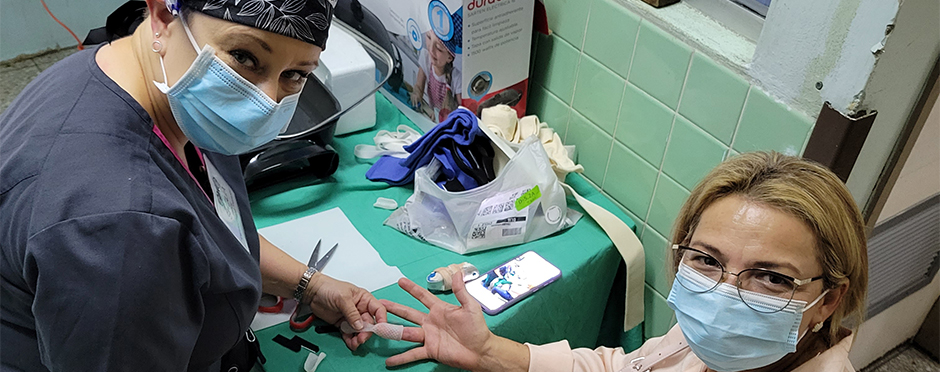
Lending a Helping Hand in Honduras
Leave a CommentAthletico Hand Therapist, Shelia T., OTR/L, CHT recently traveled to Tegucigalpa, the capital city of Honduras, on a medical mission trip with Global Health Outreach from May 27 to June 3, 2023. During her time in Honduras, Shelia had the opportunity to impact the lives of many by leveraging her skills as a hand therapist to construct custom orthotics and braces for those in need.
The Athletico Cares Foundation, a 501(c)3 nonprofit dedicated to serving Athletico employees and communities, was proud to support Shelia’s trip with a grant, in addition to a generous fundraiser hosted by Athletico’s St. Louis region.
What inspired you to travel to Honduras?
This trip was a wonderful opportunity to allow me to utilize my skills as a hand therapist to help the people of Tegucigalpa, Honduras. During the week, the team performed life changing procedures at three hospitals to improve the quality of life for patients, who may not otherwise have received this care due to lack of resources.
I was joined by another hand therapist to create custom orthotics and braces for about 50 post-surgical cases to protect the repairs and to allow for proper healing. In addition, we made orthotics for those who did not need surgery or who would be awaiting surgery in the future, helping to align their joints and protect them from further deformity. We also had the opportunity to work with and train local therapists to perform some of these skills after we departed.
What is the situation like in Honduras in terms of access to medical care?
Honduras is a beautiful, tropical mountainous country. The people are all very welcoming to American doctors and therapists, who they all know were coming for the week. The people repeatedly thanked us for coming, fully knowing they would have likely not received any care, or as modern of care, for their condition had the brigade not come to their city.
Many modern supplies and conveniences such as Coban wrap and Steri-Strips are simply not available in Honduras. Surgeries are often performed with alternate techniques by cutting screws down, as the appropriate length is not available. Power drills are often not available to place screws and pins to align fractures, and fluoroscopy or a live X-ray, is not available to check for accuracy and alignment of repairs during surgery. Tools to perform skin grafting are also not available.
Despite these setbacks, the local hand surgeons have adapted by using a men’s razor blade and specialized techniques to make a meshed skin graft to cover the many wounds from motorcycle accidents. One surgeon was even fabricating radial head replacements (the round projection from a bone in the elbow) from surgical cement, as there is no means of acquiring these prosthetics from a medical rep. There are many amputees in Honduras, as they often don’t have access to advanced techniques to save one’s limb after a traumatic injury. The people are very creative and truly appreciate the simple things in life.
What did you take away from your trip?
Seeing how the Hondurans live has taught me that a lot of the things in our modern lives that seem really important, just aren’t. People live very modest lives and don’t seem any less happy because of it. This trip made me realize how lucky we are to live in a place where access to modern medical technology and aftercare, such as physical and occupational therapy, can really save lives and add so much quality to our lives.
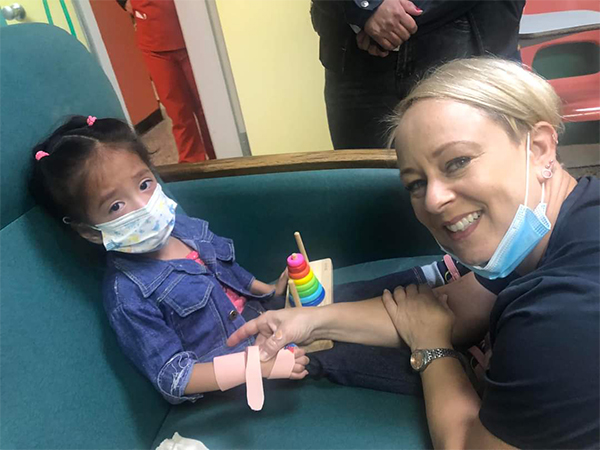
Shelia and a young girl with arthrogryposis. The patient received a resting orthosis for night and another for during the day to allow for more functional use and to normalize muscle tone. Shelia treated her to some candy as a much needed distraction to cheer her up!
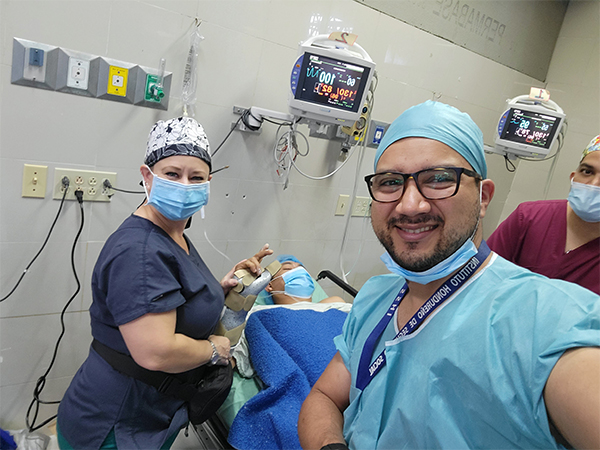
Shelia and Elvin, one of the Honduran hand surgeons, and a patient who she made an orthosis for while he was in post-op recovery.
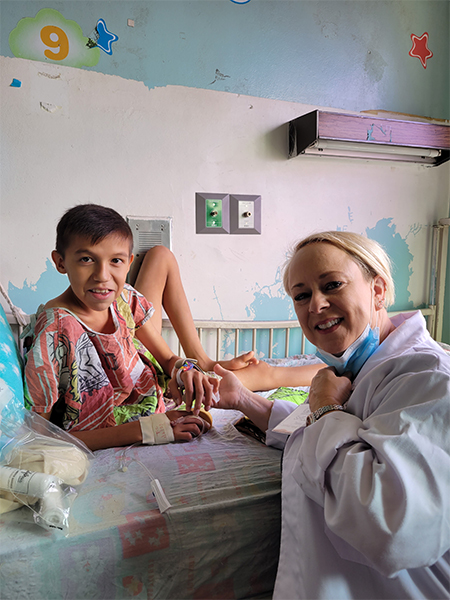
Shelia with a boy who received an orthosis for before he had surgery to correct a small finger middle joint contracture.
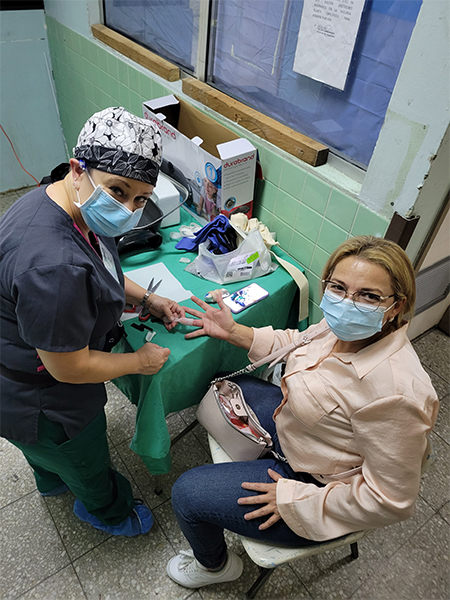
Shelia working with a woman who took off of work to come in so she could get a custom orthosis for her for non-surgical treatment of a mallet finger.
